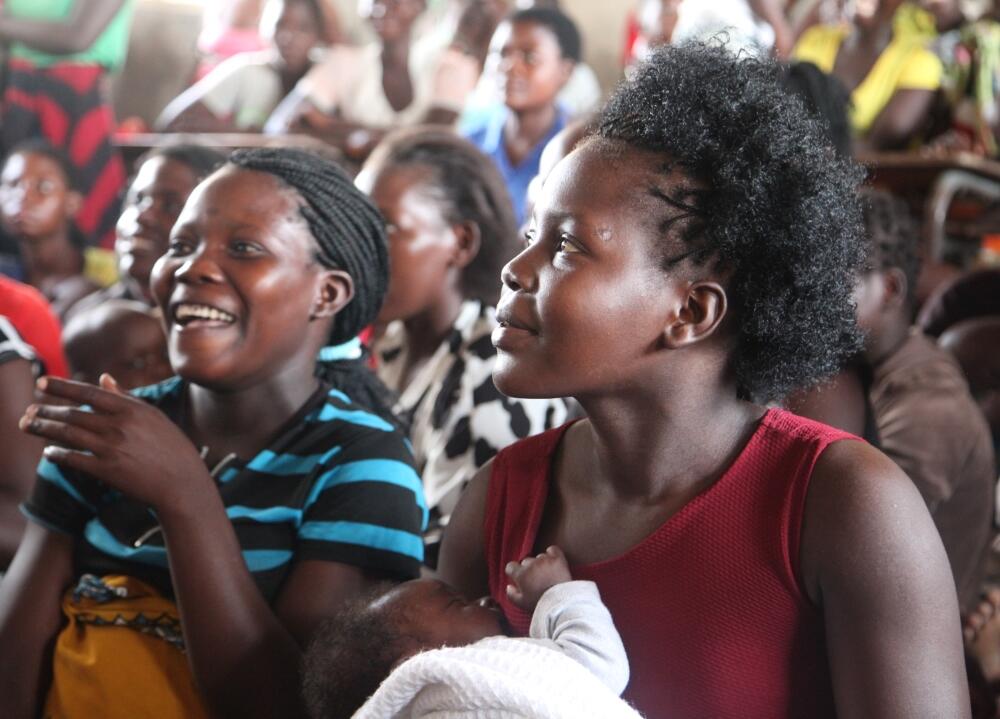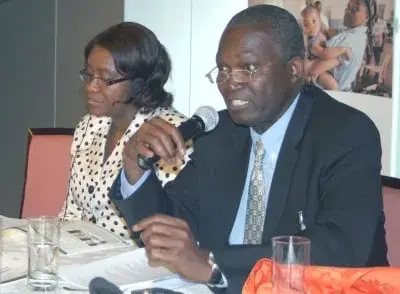The United Nations’ High Level Political Forum on the Sustainable Development Goals met at ministerial level, ahead of the September SDG Summit under the theme ‘Empowering people and ensuring inclusiveness and equality’. The ministers reviewed SDG 4 (Quality Education), SDG 8 (Decent Work and Economic Growth), SDG 10 (Reduced Inequalities), SDG 13 (Climate Action), SDG 16 (Peace, Justice and Strong Institutions) and SDG 17 (Partnerships).
At a Ministerial Luncheon held on the margins of the High Level Political Forum (HLPF), African Ministers, HLPF Heads of Delegations, high-level government functionaries, Permanent Representatives to the UN, and UNFPA leadership reaffirmed the International Conference on Population and Development (ICPD) Agenda through the Addis Ababa Declaration on Population and Development (AADPD). Ministers recommitted to fulfilling the Promise of the ICPD through accelerating implementation of the ICPD Programme of Action, with a priority focus on placing people’s rights at the centre of development.
This important exercise took place just a few months before UNFPA’s high-level conference in November to advance implementation of the ICPD Programme of Action, the Nairobi Summit on ICPD25: Accelerating the Promise. The six goals under review this year are fully in line with the ICPD Programme of Action, without which the achievement of the SDGs will not be possible.
Twenty-five years ago, at the ICPD in Cairo, 179 governments adopted the visionary Programme of Action that aimed to safeguard the health and rights of women and girls and to promote their empowerment. The Programme of Action urged governments to “accelerate women’s equal participation and equitable representation at all levels of the political process and public life”.
As part of the ICPD Beyond 2014 review, Africa adopted 88 bold commitments in the framework of the Addis Ababa Declaration on Population and Development, which was endorsed by the Heads of States in January 2014.
Although important gains have been made, many of the goals laid out in the ICPD Programme of Action have not been met. Today, it is recognized globally that fulfilling the rights of women and girls is central to development.
At the 2019 Commission on Population and Development in New York in April, governments agreed that the principles of the ICPD Programme of Action are essential to achieving the Sustainable Development Goals. This is why UNFPA and its partners are calling for renewed commitments from governments, organizations and advocates to accelerate efforts to realize the goals of the Programme of Action.
Across Africa, we continue to see the promise of the ICPD agenda manifested through the unprecedented mobilization of young people, whose voices inform change; through traditional leaders, who decree that traditions of oppression and discrimination against women and girls should no longer be tolerated; through religious leaders, who believe that women must have the freedom to determine the number and spacing of their children; through First Ladies, who work every day to galvanize support for women’s empowerment; and through civil society, which holds us all accountable, and contributes in immeasurable ways to expanded access to critical sexual and reproductive health services.
The HLPF provided a unique platform to discuss the renewal of commitments and, as UNFPA in partnership with the governments of Kenya and Denmark organizes the Nairobi Summit in November this year, all opportunities should be seized in preparation.
Fighting inequality across the board
For Africa, addressing inequalities across the board is of paramount importance. Addressing inequalities across all sectors of our societies – including quality education, decent work and economic growth – necessitates that we eliminate disparities in access to sexual and reproductive health and rights, and the consequences of lack of access, such as unintended pregnancies, unsafe abortion, maternal deaths, and gender-based violence, including female genital mutilation. It also requires that we spare no effort to prevent child marriage and provide young people, particularly adolescent girls, with quality education that includes comprehensive sexuality education.
For these to happen, we should maximize the benefits of the demographic dividend by investing in the empowerment, health, education and employment of young people, as well as by creating opportunities and a supportive environment for innovation, creativity and entrepreneurship for young people to access jobs and realize their full potential.
Addressing inequalities also means that we empower young people with the information and skills to make informed choices about their lives, to enable them stay healthy and free from sexually transmitted infections, HIV and Non-Communicable Diseases, and ensure the availability and use of accurate, disaggregated data for decision-making to ensure that no one is left behind.
Renewing our commitment to, and actioning, the ICPD Programme of Action will enable us to achieve the SDGs and Agenda 2063.
People matter – and every single one of us counts. In Africa, we can truly work towards ensuring equal rights and choices for all.
Dr. Julitta Onabanjo
Regional Director
UNFPA East and Southern Africa





